
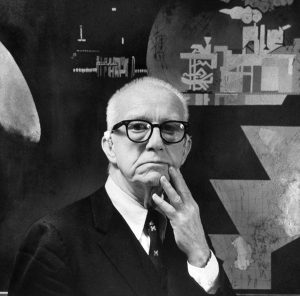
Buckminster Fuller
- The stability of the triangle
- The one quantum created in the tetrahedron
- How the icosahedron, the octahedron and tetrahedron create everything in the universe
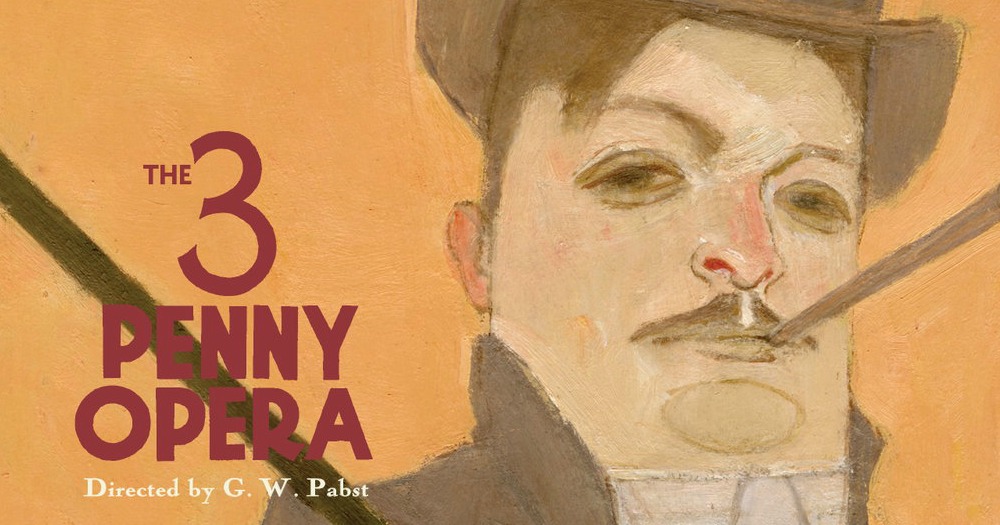
Kurt Weill/Bertolt Brecht
Bertolt Brecht and Kurt Weill’s The Threepenny Opera is a masterpiece of musical theater that grew out of its writers’ experience of Weimar Germany, the period between the World Wars when Germany struggled to establish a working democracy in the face of economic malaise and the bitterness of military defeat.
First performed in Berlin in 1928, Brecht’s text is sardonic and brittle. He creates a world of beggars, thieves, and prostitutes in which there is no honor; every character would sell out any other if an advantage is to be gained.
A man who sees another man on a street corner with only a stump for an arm will be so shocked the first time he’ll give him sixpence. But the second time it’ll only be a threepenny bit. And if he sees him a third time, he’ll have him cold-bloodedly handed over to the police.
(By not so surprising chance, those lines function nicely as a precis of the 1990s relationship of American municipalities to the homeless.)
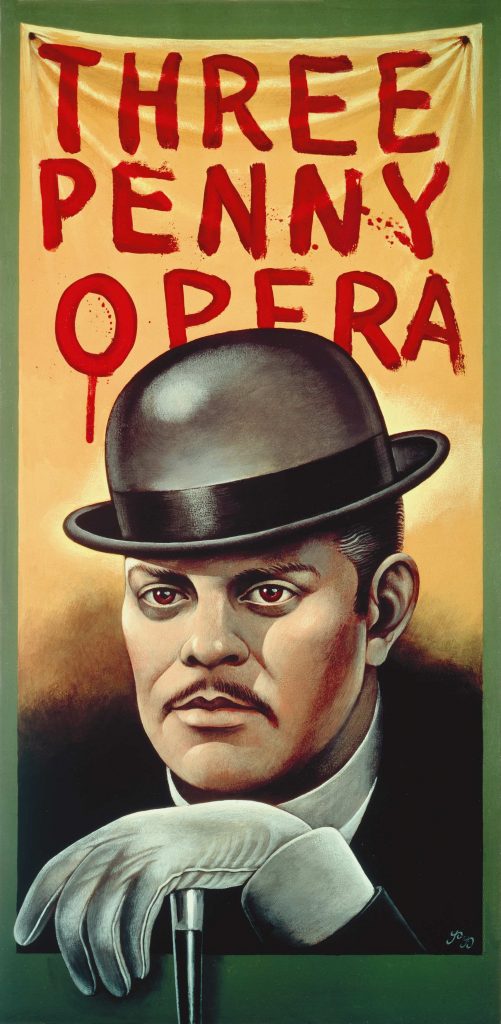
Macheath (“Mack the Knife”) heads up the thieves division. His men tremble before him, he’s got the police well greased, and women compete for his sexual attentions. He has impregnated his lover, Lucy, he marries Peachum’s daughter Polly, and he still has a passionate connection with hooker Jenny.
For this cynical scenario, Weill wrote a score that has become part of Western culture’s consciousness: jazzy, syncopated, dissonant, and full of inventive melody, it captures the essence of the mocking, ironic tone of the book.
The Threepenny Opera is a highly stylized piece. It is not a show about production values. On the contrary, it is the kind of show that, if performed with the right tone and the appropriate sense of style, could be done effectively on a bare stage.
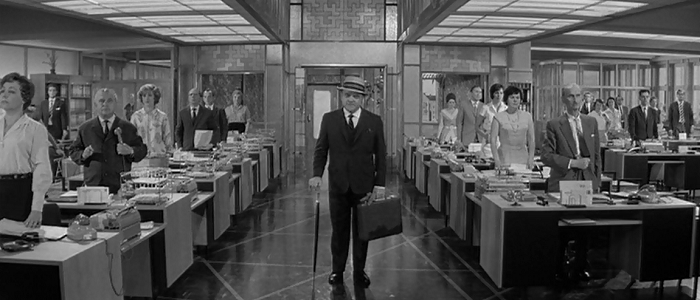
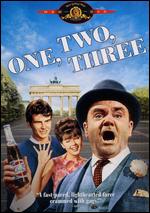
Cast: James Cagney, Horst Buchholz, Arlene Francis, Pamela Tiffin; DIRECTED BY: Billy Wilder; WRITTEN BY: Billy Wilder, I.A.L. Diamond; CINEMATOGRAPHY BY: Daniel F. Fapp; MUSIC BY: Andre Previn. PRODUCER: United Artists. Cagney, an American Coca-Cola exec in Germany, zealously pursues any opportunity to run Coke’s European operations.
In his last starring film (it was supposed to be his last film, but Ragtime came along in 1981), James Cagney plays Coca-Cola executive C.R. MacNamara. Assigned to manage Coke’s West Berlin office, MacNamara dreams of being transferred to London, and to do this he must curry favor with his Atlanta-based boss, Hazeltine (Howard St. John).
Thus, MacNamara agrees to look after Hazeltine’s dizzy, impulsive daughter, Scarlett (Pamela Tiffin), during her visit to Germany. Weeks pass, and on the eve of Hazeltine’s visit to West Berlin, Scarlett announces that she’s gotten married. Even worse, her husband is a hygienically challenged East Berlin Communist named Otto Piffl (Horst Buchholz). The crafty MacNamara arranges for Piffl to be arrested by the East Berlin police and to have the marriage annulled, only to discover that Scarlett is pregnant.
In rapid-fire “one, two, three” fashion, MacNamara must arrange for Piffl to be released by the Communists and successfully pass off the scrungy, doggedly anti-capitalist Piffl as an acceptable husband for Scarlett. MacNamara must accomplish this in less than 12 hours, all the while trying to mollify his wife (Arlene Francis), who has learned of his affair with busty secretary Ingeborg (Lilo Pulver).
Seldom pausing for breath, Billy Wilder’s film is a crackling, mile-a-minute farce, taking satiric scattershots at Coca-Cola, the Cold War (the film is set in the months just before the erection of the Berlin Wall), Russian red tape, Communist and capitalist hypocrisy, Southern bigotry, the German “war guilt,” rock music, and even Cagney’s own movie image.
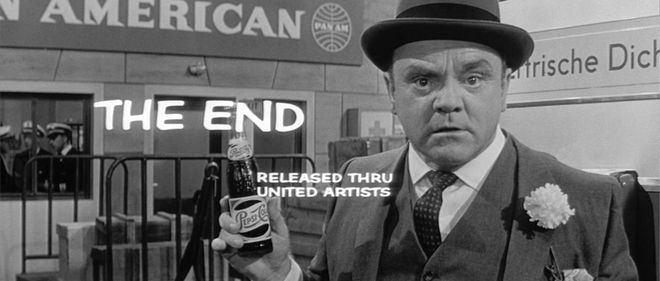
Not all the gags are in the best of taste, and most of the one-liners have dated rather badly, but Cagney’s mesmerizing performance holds the whole affair together. Billy Wilder and I.A.L. Diamond adapted their screenplay from an obscure play by Ferenc Molnár. Watch for Red Buttons in an unbilled cameo as a military policeman, and listen for the voice of Sig Rumann, emanating from the mouth of actor Hubert Von Meyerinck (the Count von Droste-Schattenburg).
~ Hal Erickson, All Movie Guide